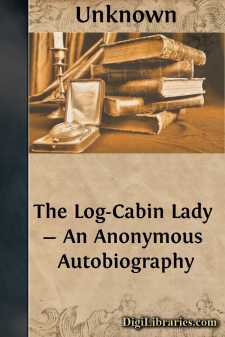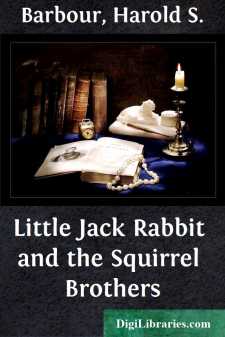Categories
- Antiques & Collectibles 13
- Architecture 36
- Art 48
- Bibles 22
- Biography & Autobiography 813
- Body, Mind & Spirit 142
- Business & Economics 28
- Children's Books 17
- Children's Fiction 14
- Computers 4
- Cooking 94
- Crafts & Hobbies 4
- Drama 346
- Education 46
- Family & Relationships 57
- Fiction 11829
- Games 19
- Gardening 17
- Health & Fitness 34
- History 1377
- House & Home 1
- Humor 147
- Juvenile Fiction 1873
- Juvenile Nonfiction 202
- Language Arts & Disciplines 88
- Law 16
- Literary Collections 686
- Literary Criticism 179
- Mathematics 13
- Medical 41
- Music 40
- Nature 179
- Non-Classifiable 1768
- Performing Arts 7
- Periodicals 1453
- Philosophy 64
- Photography 2
- Poetry 896
- Political Science 203
- Psychology 42
- Reference 154
- Religion 513
- Science 126
- Self-Help 84
- Social Science 81
- Sports & Recreation 34
- Study Aids 3
- Technology & Engineering 59
- Transportation 23
- Travel 463
- True Crime 29
Sort by:
CHAPTER I The White Man's Discovery of North America So far as our knowledge goes, it is almost a matter of certainty that Man originated in the Old World—in Asia possibly. Long after this wonderful event in the Earth's history, when the human species was spread over a good deal of Asia, Europe, and Africa, migration to the American continents began in attempts to find new feeding grounds...
more...
by:
Unknown
PREFACE The story of The Log-Cabin Lady is one of the annals of America. It is a moving record of the conquest of self-consciousness and fear through mastery of manners and customs. It has been written by one who has not sacrificed the strength and honesty of her pioneer girlhood, but who added to these qualities that graciousness and charm which have given her distinction on two continents. I have...
more...
by:
Isabel Savory
CHAPTER I The vague and hazy ideals which the white light of an English upbringing relegates to dreamland and dismisses as idle fancies, rise up in the glare of African sunlight, alive, tangible, unashamed; the things that are, not the things that might be:—the vivid colouring, the hot crowding, the stately men and veiled women, the despotism and stoicism, the unchanging picturesqueness of the...
more...
INTRODUCTORY SKETCH The title naturally suggested for this story was "A Dead Soul," but it was discarded because of the similarity to that of the famous novel by Nikolai Gogol—"Dead Souls"—though the motive has nothing in common with that used by the Russian novelist. Gogol exposed an extensive fraud practiced by the sale, in connection with lands, of the names of "serfs"...
more...
by:
Aylmer Maude
CHARACTERS LEONÍD FYÓDORITCH ZVEZDÍNTSEF. A retired Lieutenant of the Horse Guards. Owner of more than 60,000 acres of land in various provinces. A fresh-looking, bland, agreeable gentleman of 60. Believes in Spiritualism, and likes to astonish people with his wonderful stories. ANNA PÁVLOVNA ZVEZDÍNTSEVA. Wife of LeonÃd. Stout; pretends to be young; quite taken up with the conventionalities...
more...
by:
Armand Both
CHAPTER I Night had fallen and a warm rain drifting down from the mountains hung in a mist over the railroad yards and obscured the lights of Medicine Bend. Two men dismounting from their drooping horses at the foot of Front Street threw the reins to a man in waiting and made their way on foot across the muddy square to the building which served the new railroad as a station and as division...
more...
ORIGIN OF COMEDY—ARISTOPHANES—DEATH OF SOCRATES. Though the term "tragedy" has from the first productions of Æschylus to the present time, been exclusively appropriated to actions of a serious nature and melancholy catastrophe, there is reason to believe that it originally included also exhibitions of a pleasant, or comic kind. The rude satires, and gross mummery which occupied the stage,...
more...
Never stop upon your way,Just to fool around and play.Learn to quickly go to school;Never, never break this rule. But, oh dear me. One morning when Little Jack Rabbit met the Squirrel Brothers, Featherhead, the naughty gray squirrel, asked him to stop and play a game of marbles. “Where are your marbles?” asked the little rabbit. “Here they are,” answered Featherhead, taking some red and yellow...
more...
After my return from the Terai, I was occupied during the month of April in preparations for an expedition to the loftier parts of Sikkim. The arrangements were the same as for my former journey, except with regard to food, which it was necessary should be sent out to me at intervals; for we had had ample proof that the resources of the country were not equal to provisioning a party of from forty to...
more...
CHAPTER IFIRST IMPRESSIONS “Oh, dear, what if she shouldn’t meet me!” sighed Betty Wales for the hundredth time at least, as she gathered up her bags and umbrella, and followed the crowd of noisy, chattering girls off the train. “So long, Mary. See you to-morrow.” “Get a carriage, Nellie, that’s a dear. You’re so little you can always break through the crowd.” “Hello, Susanna! Did...
more...











